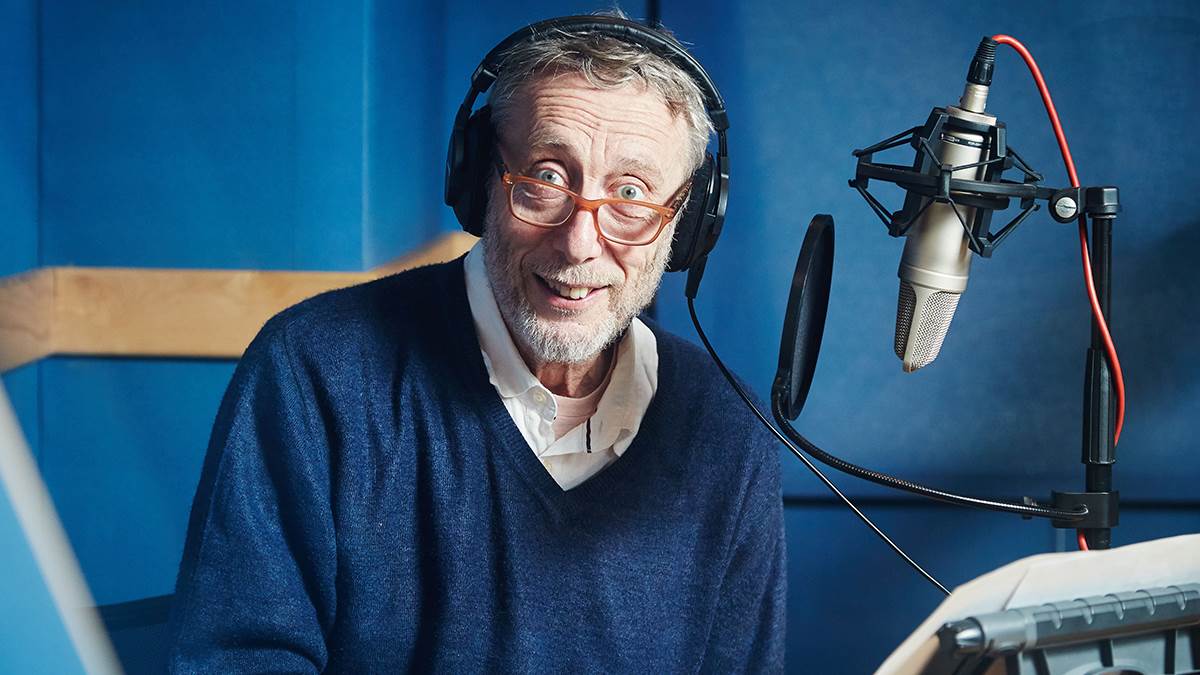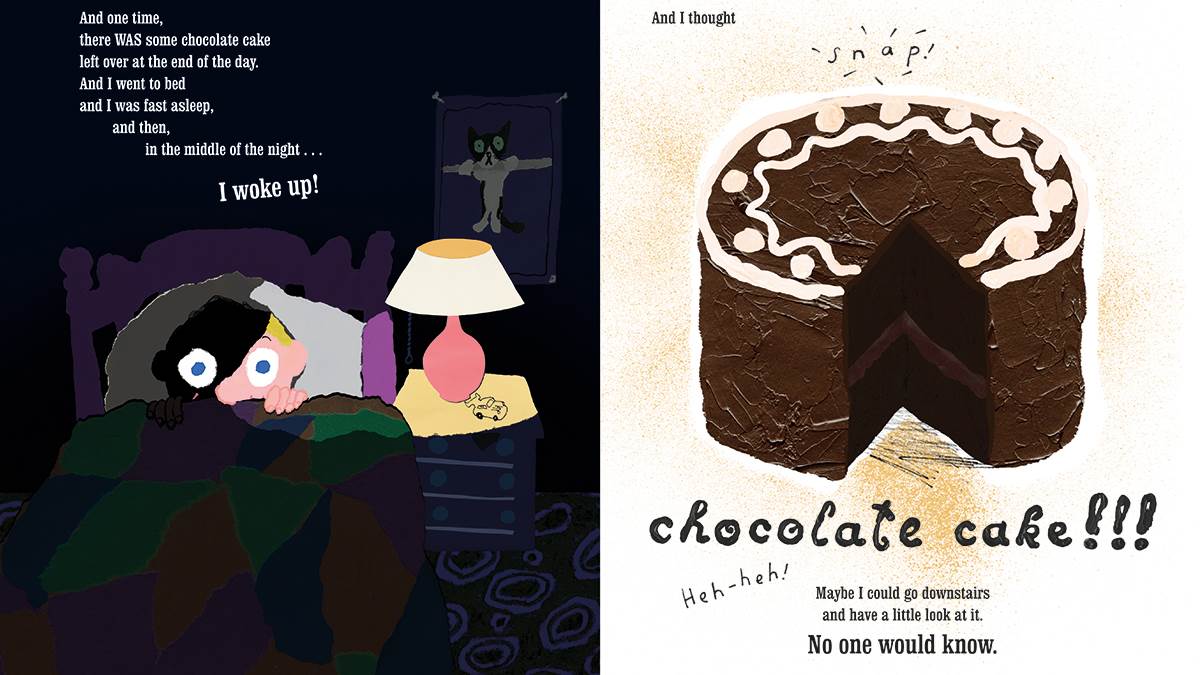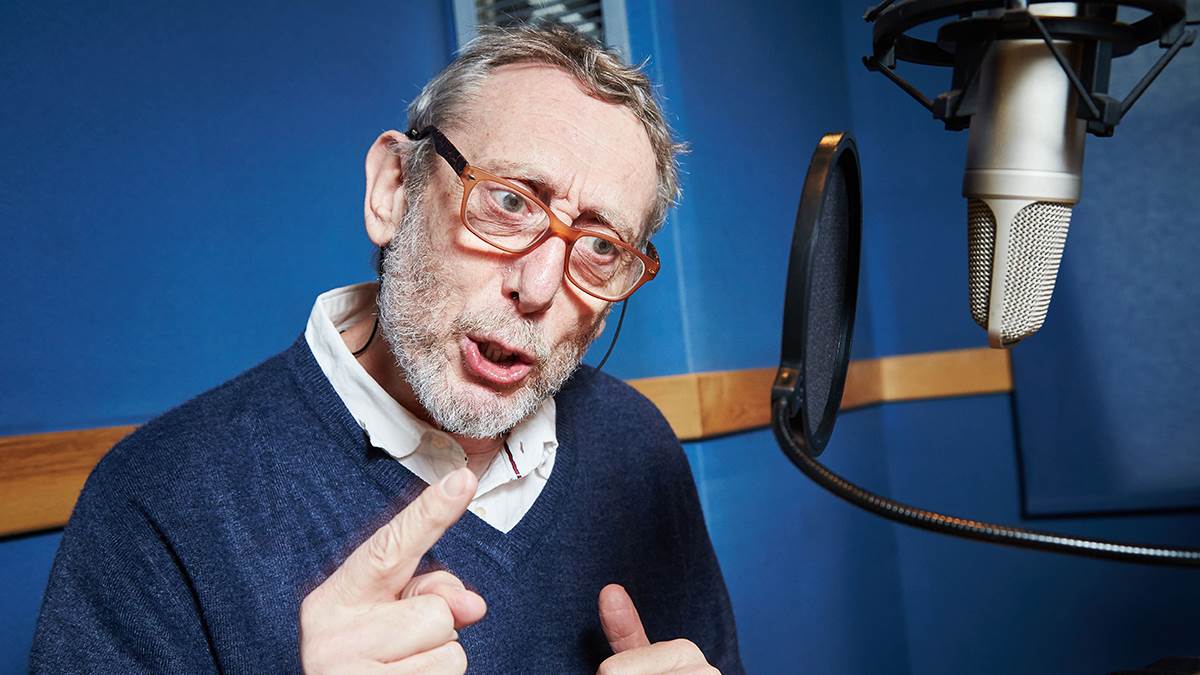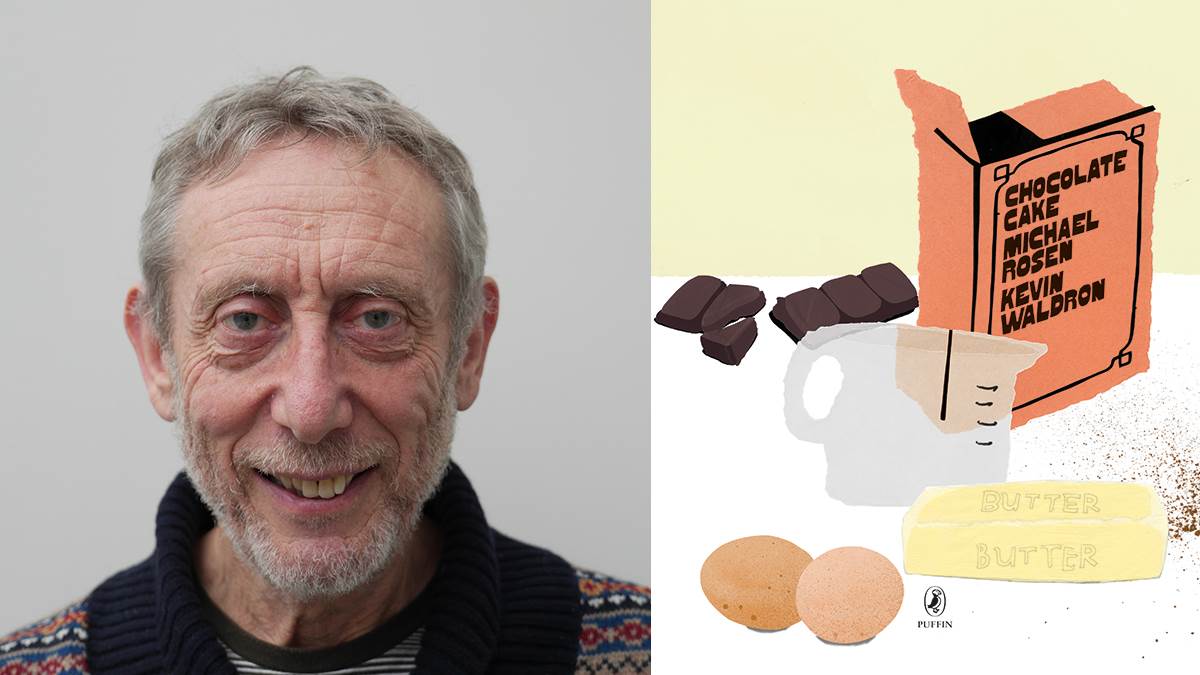'Maybe I didn't eat ALL the chocolate cake...': Michael Rosen on his classic poem
Published on: 07 September 2017 Author: Emily Drabble
Chocolate Cake is already a YouTube hit and now it's been made into a gorgeous picture book for the first time, with illustrations by Kevin Waldron. We got to ask Michael a few questions...

Tell us how and why you originally wrote Chocolate Cake!
'I didn't write it, I performed it! It's an example of a performance poem that developed through my shows. Between the poems there are gaps, kids ask me questions, and I respond. Then I might ad lib some stuff and I might develop it. In the early 1980s, 'Chocolate Cake' developed as a performance piece that I wrote down and published as a poem in my book Quick, Let's Get Out of Here. I noticed that very young children loved the poem, so I suggested doing a picture book and Penguin, wonderfully, said yes and married me up with Kevin Waldron who I've worked with before on Tiny Little Fly.The rest is history!'
Is Chocolate Cake an autobiographical tale?
'Yes. My parents taught me a lot - I'd listen to them telling stories about things that had happened and I'd think, "That isn't exactly how it happened, is it?" I'd keep quiet about it, and watch. The audience would laugh and my dad would add another little bit the next time, and another little bit the time after, and only then did the story get fixed.
'Once we were on holiday and my older brother got the train home alone, but he forgot the key to the house. My dad decided we would drive across the Yorkshire Moors and meet him en route at the station. So there was this chase and we caught up and managed to give him the key through the window. But at some point in the telling of the story it developed the line, "Stop the train!"
'Because my dad is very much not a "Stop the train" kind of person this became a comic thing in our family. I knew he hadn't said "stop the train", but I thought, "Ooh, yessss!" So if bit by bit you embellish, add bits, put in some noises, and tweak the tension, everyone loves it. When people say, "Is [Chocolate Cake] true?" Kind of... maybe I didn't eat all the chocolate cake.'

What is it about poetry that makes it so brilliant to read out loud?
'In school, children have a whole apparatus around phonics, spelling, punctuation, grammar and writing to an expected level. It's all about correctness. The wonderful thing about poetry is that it says there is another element to language. It's physical. It's about the sound of the stuff. And meaning can come from sound.
'Now this is very exciting for children. Young children must be in a position where they don't actually understand what's being said to them much of the time. People all around them are talking about politics, the weather and they have no idea what they're talking about but they hear the sound of it. And suddenly along comes this stuff called poetry.'
How should people read Chocolate Cake out loud? Can they read it as a story, not as a poem?
'They can read it how they want! I'd always say, forget you are reading a poem and think instead that you've got a script. It's up to you. Over on YouTube there's Rosen performing it, you can nick a bit of that! I love listening to other people reading out my poems, particularly kids.'

What's your favourite poem to read out that you haven't written?
'I'm pretty keen on 'The Jabberwocky' by Lewis Caroll and Edward Lear's 'The Jumblies'. 'The Jumblies' was read to me when I was a child and I remember thinking, "Wouldn't the sieve sink?"'
What tips do you have for reading poetry out loud?
'When you're reading poetry out loud it's quite a good idea to think it's not you reading it. The person who's reading it is somebody else who's a bit like you. This other person who's a bit like you can do anything and be anything. It doesn't matter if you make a fool of yourself or cry; it doesn't matter because it's not you, it's somebody else.
'The moment you think like that you'll find gestures, voices, expressions, tricks, outrageous things like walking away and walking back again. Or reading a poem very quietly so people are saying, "What are you saying?" And then going, "Raargh!" You can do all of it.

Can you give some advice to parents or carers who feel nervous or not very confident about reading a poem aloud to their children?
'Let the poem drag you along. Writers are people who put hooks on our words. The hooks are there to pull you along. Sometimes it's tension, sometimes it's sound, sometimes it's the beautiful flow, sometimes it's cliffhangers, sometimes it's a sub-plot, or a real plot.
'We have all these techniques and they are all to pull you along. So as you're reading, just let yourself be pulled and don't worry too much about whether you are doing a good show, or putting on a good performance, or doing lots of voices. If you feel like it, do it, but let the hooks work.
'And as a very simple thing, read fairly slowly. Don't feel you have to hurry. I've always noticed that people who are nervous or self-conscious about reading speed up. I would say just the opposite: slow down.'
What are your favourite words to say out loud and what makes them special?
'I think most of my favourite words are words that my parents used, that came from a language their parents used. So they are archaeology; little old remains you find in the ground that survived. If my mother wanted to say, "Your room is a mess", she didn't say that, she said, "Your room is mishadamonk".
'If there was a lovely plate of food, my dad just said, "Shnobbregants". I've now found out it means "goose beak". What? Why, when he saw food, did he say "goose beak" in Yiddish? And I'll tell you why! What do geese do when they see food? They honk! And they dive their heads in and scoop it up with their beaks. And so I think of my dad, with all these grown-ups, talking in a language he mostly didn't understand, hearing "shnobbregants" - and the word survives. And now when a lovely plate of food appears I also think, "Ah, shnobbregants". I've never met anyone else who ever used either of these two words.'
Chocolate Cake by Michael Rosen and illustrated by Kevin Waldron is published by Puffin. Uncle Dread and the Shed and its sequel Uncle Dread and the Green Heads are published by Bloomsbury.
For adults wanting to know more about Michael, his autobiography So They Call You Pisher has just been published by Verso.
Topics: Picture book, Poetry/rhyme, Librarian, Parent/carer, Teacher (primary), Writer, Rhyme, Interview, Features





